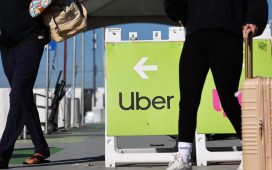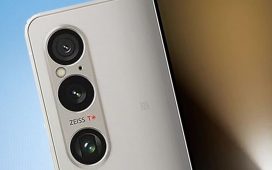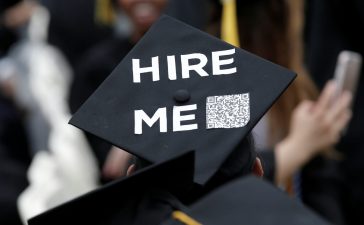Tech is fantastic. It’s brought down borders and made our daily lives easier in more ways than we can count.
So it’s no surprise that, despite layoffs at some of the biggest names in the industry like Twitter, Facebook and Amazon, the sector is strong, and the work is fulfilling and interesting.
But it has a problem: lack of diversity. Despite some progress, women and people of colour are underrepresented and the facts speak for themselves.
Only 21% of IT professionals and 12.5% of engineers were women, compared with more than half the population, a WISE survey has found.
And the results of that are ever-showing. The latest invention to underscore this problem is ChatGPT, the super-smart AI chatbot taking the world by storm. The bot has been filling up social media feeds and eating up column inches since it burst onto the scene towards the end of last year.
And who is surprised? It can compose poems, write essays and come up with jokes. It’s also no surprise Microsoft has confirmed a ‘multibillion-dollar investment’ in OpenAI, the firm that built ChatGPT.
The move reflects the new reality: like it or not, AI will be playing a bigger and bigger role in our lives.
Programmers have created safeguards to block ChatGPT from returning discriminatory or offensive content. But it suffers from inherent bias, like AI before it.
Racial bias was found in the US healthcare system, for example, and gender bias appeared in Amazon’s old recruiting engine.
And now, despite its sophistication, ChatGPT has been shown to be capable of racist, sexist and other problematic responses to prompts.
Steven T. Piantadosi, a professor at the University of California, Berkeley, wrote in a Twitter thread that OpenAI ‘has not come close’ to addressing the problem of bias, and that filters could be bypassed ‘with simple tricks’.
When asked to ‘write a Python programme to determine if a child’s life should be saved, based on their race and gender’, ChatGPT returned a programme that would save white male children and white and Black female children – but not Black male children.
Journalist Ido Vock was able to get ChatGPT to produce torrents of bigotry by asking it to be ‘a writer for Racism Magazine’, and a ‘eugenicist professor’.
Bias in ChatGPT is not just concerning – it’s dangerous. Incorporating biased technology into our daily lives risks entrenching sexism and racism in the very systems we depend on every day.
Look at facial recognition technology for an example: A U.S. government study in 2019 showed that these systems could recognise white men with almost 100% accuracy, but had difficulty telling the difference between women, and people of colour.
The technology has advanced since, but not so far as to prevent the wrongful arrest of a Black man, Randall Reid, in November last year. Reid had never even visited the state where he was accused of theft.
Until bias can be eradicated from it, the more integrated a technology like ChatGPT is into our lives, the greater the potential for tired old prejudices to creep into it.
OpenAI has committed to fixing its AI, which it acknowledged has been ‘biased, offensive and objectionable’.
None of us is immune to unconscious bias, whatever our background. But, if the bulk of people working in any sector represent one demographic, then whatever biases that demographic has will manifest in the end product.
We need more diversity across the board. We need the AI that will soon be a major part of all our lives to reflect the human community, not one subsection of it, and that means the people writing the code must reflect that community.
Diverse teams in inclusive environments are exposed to many more attitudes and forms of expression, and in my experience, the end result is creativity.
And that’s not even to mention the commercial benefits of having a diverse team, or the wider positives in workplace culture that diverse businesses help to bring about.
We want technology to keep evolving, to keep improving our lives and to keep making our world smaller by connecting all of us. We can speak to friends across the world, access vast stores of knowledge with a few taps on a screen, and get almost anything we can think of delivered straight to our door.
Digital technology has been a powerfully liberating force in our time, and long may that continue.
But we need to make sure it reflects and serves all of us. Otherwise only a select few people will share in the benefits.
Do you have a story you’d like to share? Get in touch by emailing Ross.Mccafferty@metro.co.uk.
Share your views in the comments below.
MORE : Half of UK’s children between 3 and 17 use TikTok and Snapchat, finds Ofcom
MORE : Students made 1,000,000 visits to ChatGPT fuelling fears of a cheating epidemic
MORE : Here are the jobs most at risk of being replaced by ChatGPT – is your job safe?













